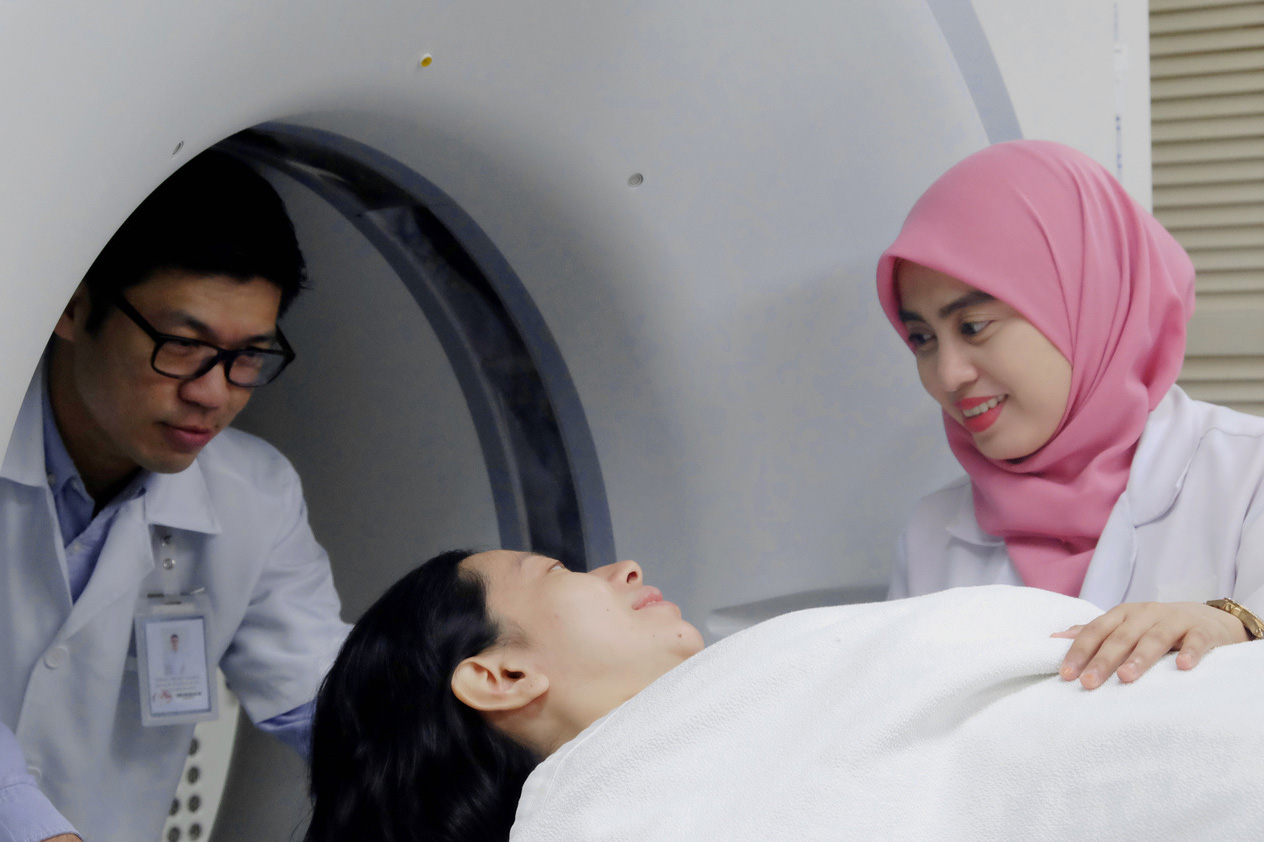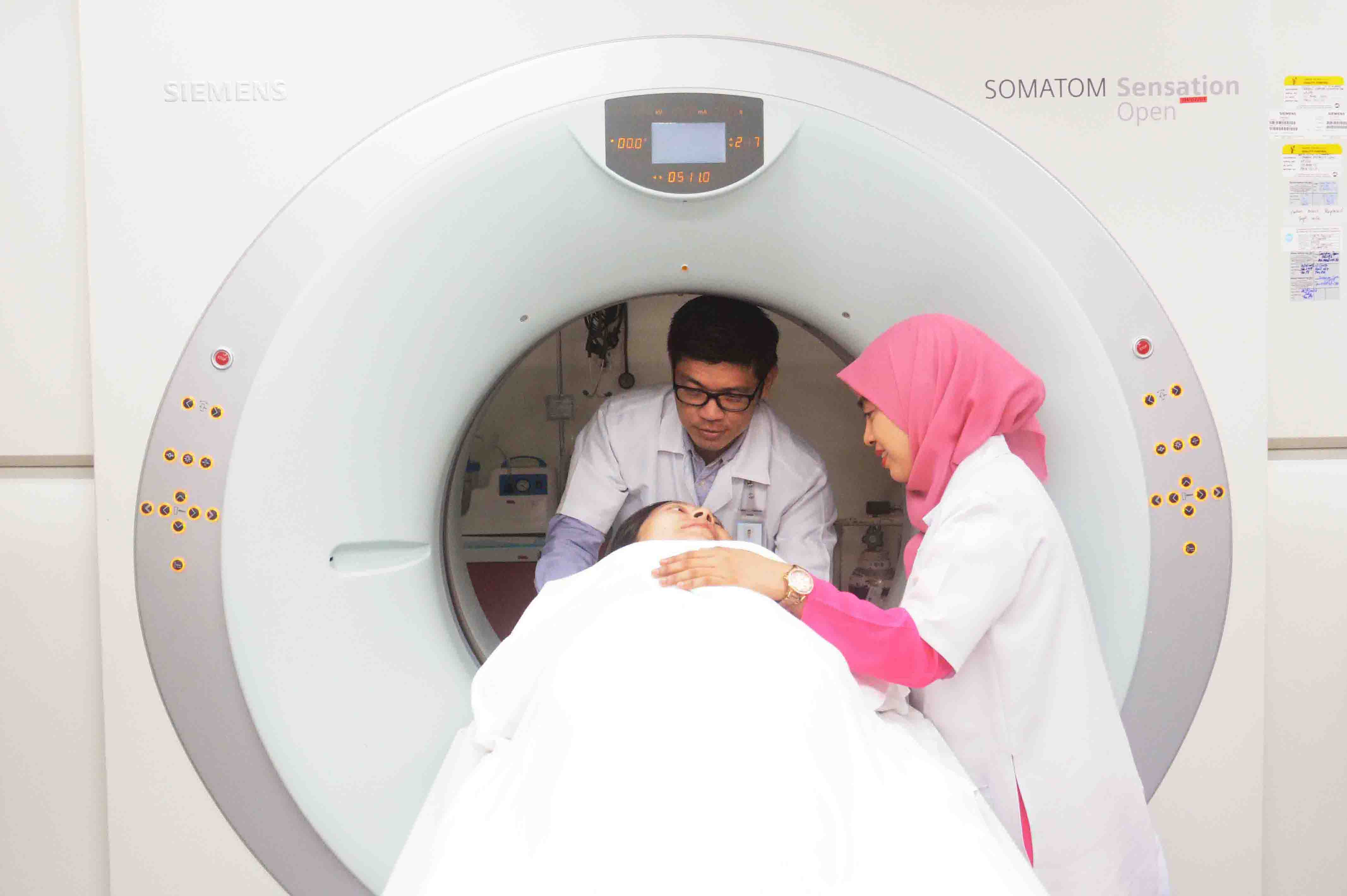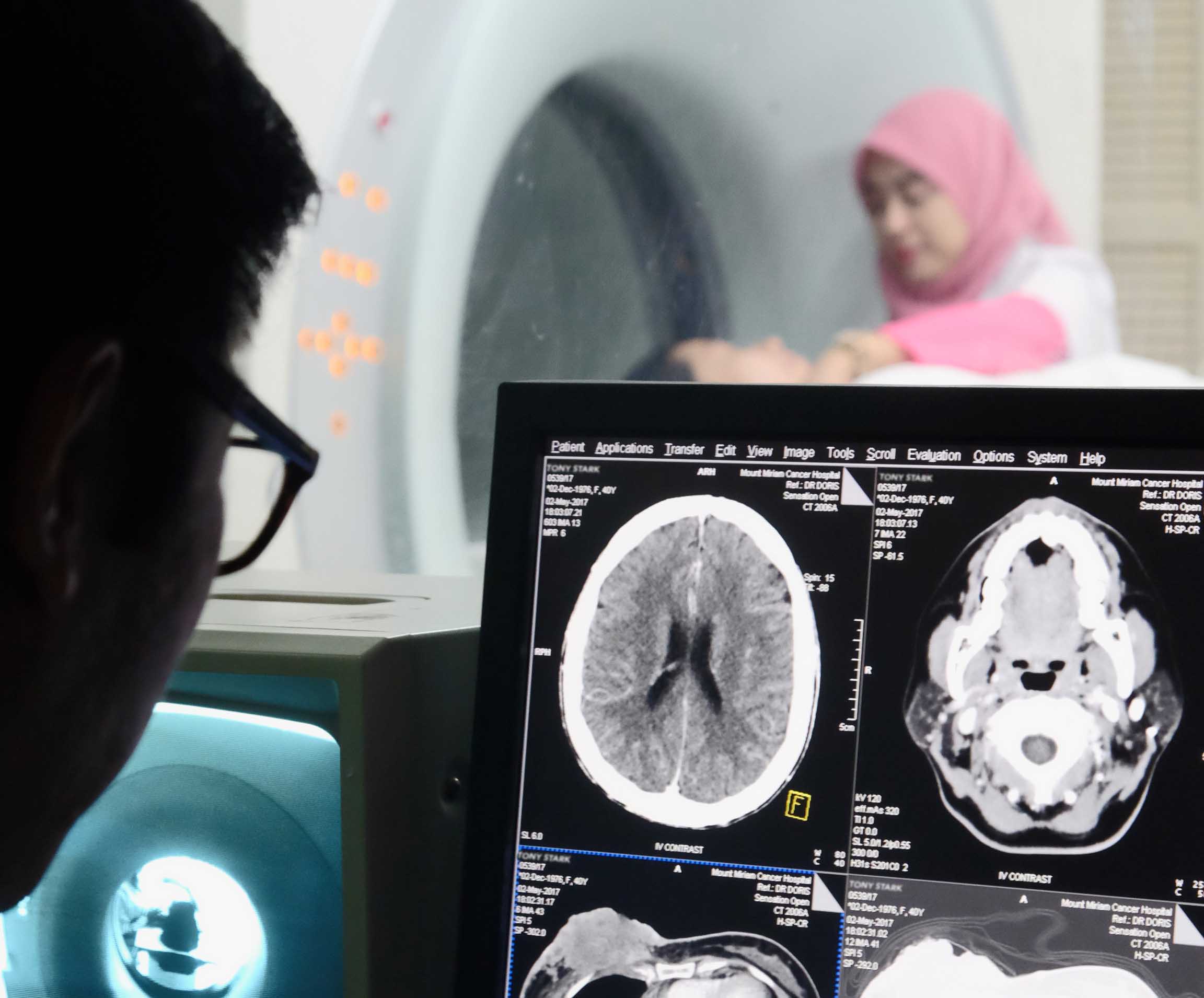What is CT scan?
Computed Tomography (CT) is an imaging procedure that uses special x-ray equipment to create detailed scans, of areas inside the body
It is also called computerized tomography or computerized axial tomography (CAT). CT scan can help to detect cancer and show the tumour’s shape, size and location. CT scans are able to show a slice, or cross-section, of your bones, organs, and soft tissues, much clearer than the standard x-rays. They can even show the blood vessels that feed the tumour, without having to cut into the patient. By comparing CT scans done over time, doctors can see how a tumour is responding to treatment.


How does CT scan work?
Well-defined, sophisticated, thin beam to create a 3-dimensional clear image
CT scans are almost like standard x-ray tests. However, x-ray test aims a broad beam of radiation from only one angle. A CT scan uses a pencil-thin beam to create a series of pictures taken from different angles. The information from each angle is fed into a computer program, which then creates a black and white picture that shows a slice of a certain area of the body, much like looking at a single slice from a loaf of bread.
Special contrast materials can be used to get a clearer picture. These can be swallowed as a liquid, put into a vein, or put into the intestines through the rectum as an enema. By layering CT image slices on top of each other, the machine can create a 3-dimensional (3-D) view. The 3-D image can be rotated on a computer screen to look at different angles.
What will I expect for a CT Scan?
Oral Contrast
Depending on which part of your body is undergoing CT Examination as per your physician’s request, you may ask to drink a clear fluid type of oral contrast on the day of your examination. This orally administered contrast media are used for gastrointestinal opacification so that it acts as a contrast between your intestines and the structures surrounding it. You may find the taste mildly unpleasant, however most patients can easily tolerate it. You may have to wait for an hour or so until this oral contrast had sufficiently coated your intestines before commencing the CT Scanning.
What will I expect for a CT Scan?
Rectal Contrast
Sometimes rectal contrast is required during the CT Examination. This contrast material is used for lower colon opacification and is given by inserting a catheter/tube to your anus as an enema. The catheter will be removed once the rectal contrast was administered. You may experience a sense of abdominal fullness and an increasing need to expel the liquid. In this case, be patient, as the mild discomfort will not last long.
What will I expect for a CT Scan?
Intravenous Contrast Media Administration
During the scan, you may also be given contrast media intravenously. A cannula will be inserted into your vein either at your arm or hand before contrast media administration. This contrast material will act as a “dye” to enhance visibility in the area of the body being studied. You should inform your doctor of the following before commencing a CT scan:
- If you have allergies to iodine, any medications or food (such as shrimp or other shellfish). If there is a risk of you having an allergic or asthmatic reaction, you may need to take some medications or injection before the scan to prevent a reaction. Discuss this with your doctor.
- About any previous reactions you have to contrast media injections.
- What medications you are currently taking.
- If you have asthma, diabetes or kidney problems.
- Is there any possibility that you may be pregnant.
How is the Scan Performed?
- You may be asked to undress, put on our hospital gown, and remove underwire bras, jewelry, piercings, or any other metal objects that may get in the way of the image. You may be asked to remove dentures, hearing aids, hair clips, and so on, as they can affect the CT pictures.
- Let our CT Scan personnel know if you have a pacemaker, infusion port, or other implanted medical device. This will not keep you from getting a CT scan, but extra care can be taken.
- Do not eat any solid food for 4 hours prior to your CT Scan. You may drink clear liquids up until the time of your scan. Clear liquids include water, apple juice, black coffee or milo.
- You will then lie on a thin, flat table that moves back and forth inside the hole in the middle of the scanner.
- You may be asked to hold still or hold your breath during the scan.
- Depending on the part of the body being studied, you may need to drink contrast liquid or get a contrast enema right before the scan.
- At the time of contrast material administration through your IV line, you may have a momentary feeling of warmth and flushing and possibly mild nausea. This should pass quickly.
- The scan itself is painless and should take approximately 20-30 minutes.



